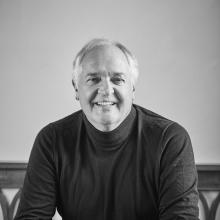
Paul Polman works to accelerate action by businesses to tackle climate change and inequality. He believes, above all, that humanity will only overcome our greatest shared challenges through far-reaching systems change and bold new partnerships to deliver the UN Sustainable Development Goals, which he helped develop.
As CEO of Unilever (2009-2019), Paul demonstrated that businesses can profit through purpose, marrying a long-term, multi-stakeholder model with excellent financial performance. During Paul’s tenure, shareholders saw their returns increase by 290% while the company consistently ranked 1st in the world for sustainability and as one of the best places to work.
Today Paul works across a range of organizations and initiatives to help speed the global action needed to regenerate our planet, renew our economies and unite our societies. He helps businesses move further and faster on these ambitions, through his work with Systemiq and mobilizing private equity.
He helps drive bold new coalitions within industries such as fashion and food, as well as between the private sector, government, and civil society, including through his work leading the UN Global Compact and as an Ambassador for the Race to Zero and Race to Resilience.
Paul is also passionate about developing our next generation of leaders, which he does as chair of the Oxford University Saïd Business School, and through his work with INSEAD, IESE, and the Boards of PRME and One Young World.
Last year Paul published his critically-acclaimed book with sustainability expert Andrew Winston, “Net Positive”, which sets out how to build companies that succeed by fixing the world’s problems, rather than creating them. He actively campaigns on a range of human rights issues, including promoting disability inclusion through the Valuable 500 and the Kilimanjaro Blind Trust, which he set up with his wife Kim. Follow him on Twitter and LinkedIn and sign up to receive his newsletter here—more on www.paulpolman.com.
